- Home CloudBilling
- Pillarpage - Billing
Streamline your financial operations

Billing is the process of generating and collecting payments for goods or services provided by a business. It typically includes generating invoices, tracking usage and costs, and managing payment and renewal of services.
Why is billing important?
Billing is an essential part of any business, as it is important for businesses to have a clear and efficient billing process in place and thereby ensure that revenue is generated in a timely manner. It also helps businesses to keep track of their financial performance, as it provides an accurate record of revenue and expenses.
A clear billing process can also help to prevent disputes with customers and clients, by ensuring that everyone is aware of the services provided and the costs associated with them. Furthermore, it plays a crucial role in cash flow management and budgeting. So, billing is an important aspect of a business as it helps to keep track of revenue, expenses, and cash flow, and it helps to ensure that the business is financially stable and sustainable.
Billing for Managed Service Providers
Billing is particularly important for Managed Service Providers (MSPs) as it is a key aspect of their business model. MSPs typically offer a range of services such as storage, computing, and software on a pay-as-you-go or subscription-based model. This means that customers pay for the services they use, rather than paying a flat fee for a fixed set of resources. As a result, accurate and timely billing is crucial for MSPs to ensure that they are able to accurately track and bill customers for the services they use.
In addition, billing is also important for MSPs because it helps to manage revenue and expenses effectively. By tracking usage and costs, MSPs can better understand their financial performance, and make more informed decisions about pricing and service offerings.
Moreover, for Managed Service Providers, it is also important to have a flexible billing model that adapts to the customer's needs and preferences. This can include offering different pricing options, such as pay-per-use or subscription-based models, and allowing customers to easily add or remove services as their needs change.
Pricing
Proper billing is also essential for developing an effective pricing strategy for MSPs. Accurate billing data provides MSPs with a clear understanding of the costs associated with providing their services over time. This information is crucial for determining the prices that MSPs can charge for their services.
The billing process
- Service Agreement: The Managed Service Provider (MSP) and the client will typically have a service agreement in place that outlines the services to be provided, the billing structure, and any other relevant details.
- Service Usage: The MSP will track and monitor the client's usage of the services provided. This can include monitoring the number of devices, amount of data storage used, or number of support tickets raised.
- Reconciliation: The MSP will reconcile the outgoing sales invoice with the procurement invoice from the Hyperscaler(s) (for example, Microsoft Azure, AWS or Google) to ensure no revenue is missed and no surprises occur. In other words, ensuring that the usage data is accurate.
- Invoicing: The MSP will generate an invoice for the client based on the usage and services provided. The invoice will typically include a breakdown of the services provided, the costs associated with each service, and any additional charges or fees.
- Payment: The client is responsible for paying the invoice in a timely manner. This can be done through various methods, such as electronic payment or mailing an invoice.
- Service Renewal: Once the invoice has been paid, the service agreement will be renewed for another billing period. This often happens automatically. The MSP will continue to monitor and provide services, and the process will repeat itself with the next invoice.
It is crucial for MSPs to have efficient and accurate billing systems in place to avoid issues and ensure the success of the business.
Symptoms of poor billing practices
There are several symptoms that arise from poor billing practices. The most noticeable are:
Billing disputes
If clients are frequently disputing charges or questioning their invoices, it could be a sign that billing practices are unclear or inaccurate.
High churn of clients
If clients are leaving in high numbers, it could be a sign that they are unhappy with their billing or invoicing.
Difficult forecasting
If a company is having trouble forecasting their revenue or accurately predicting their cash flow, it could be a sign that their billing practices are not providing an accurate picture of their financial performance.
Lack of visibility
If a business is unable to accurately track their usage and costs, they may be billing clients incorrectly or missing opportunities to optimise their resources and reduce costs.
Missing cost-saving opportunites
If an organisation is unable to identify and address cost-saving opportunities, it could be a sign that their billing practices are not providing an accurate picture of their financial performance.
Missing over-utilisation
Being unable to identify and address over-utilisation of resources could be a sign that billing practices are not providing an accurate picture of resource usage.
Lack of automation
If manual processes are still the main driver behind billing clients, it will lead to errors, delays and difficulty in tracking payments.
Solutions to improve billing
There are various ways through which MSPs and other business can improve their financial operations and billing process.
One solution to improve billing practices is through automation. Automating the billing process helps reduce errors and improve efficiency. This could include using software to generate invoices and track usage, as well as automate payment collection. This allows for a more streamlined process and helps prevent human errors.
Clear communication with clients is also important in improving billing practices. MSPs should have clear communication with clients about their billing practices, including how invoices are generated and what services are included in the cost. This prevents misunderstandings and disputes. Clients should have a clear understanding of what they are paying for, and when.
Regular auditing of the billing process helps identify and correct any issues. This may include reviewing invoices and usage data to ensure accuracy, as well as checking for any discrepancies. This can help ensure that clients are only charged for the services they have used, and that the usage data is accurate.
Offering flexible billing options such as pay-as-you-go, subscription-based, or contract-based billing contributes to meeting the needs of different clients. This allows clients to choose a billing plan that works best for them, and will increase satisfaction and retention.
Regularly reviewing and updating the billing process can help verify that it is efficient, accurate, and meets the needs of the clients. This includes updating the billing software, or adapting to new industry standards. Providing training to employees on billing process, best practices, and troubleshooting improves the overall quality of the billing process.
Investing in professional billing software will help with tracking usage, generating invoices, and automating payments. This helps ensure that the billing process is accurate and efficient, and will reduce the risk of errors.
"With CloudBilling, 80% of manual billing efforts are eradicated."
With CloudBilling, ANS is now able to send out automatically generated invoices that breakdown the public cloud consumption into clear components. On top of that, ANS can combine the public cloud spend of Azure and AWS with their own managed services. With CloudBilling ANS can keep offering flexible and complex managed services without having to worry about billing.
“To be able to see all of the different various public cloud consumption figures, third party services and then be able to apply a flexible managed service fee on top, completely automated, is worlds apart from where we were.”

The value of billing data
In addition to its role in managing client relationships and controlling costs, billing also provides valuable data for MSPs. The underlying data generated by billing systems can be used to gain insights into the performance of the business and inform strategic decision-making.
One of the key values of this data is in identifying and understanding customer behavior. By analysing billing data, MSPs gain insights into which services are most in demand, which clients are generating the most revenue, and which clients are at risk of leaving. This information can be used as input for marketing and sales strategies and target services to specific segments of clients.
Billing data can also provide insights into the performance of the MSP's own operations. By analysing data on service utilisation, MSPs can identify patterns in client usage and identify areas where they can improve their service delivery or reduce costs. This can help to optimize the business and improve profitability.
Furthermore, billing data can also be used to measure the performance of the MSP's staff. By analysing data on service delivery and client interactions, MSPs can identify the most successful team members and identify areas where staff may need additional training. This can help to improve the overall performance of the MSP and support the growth of the business.
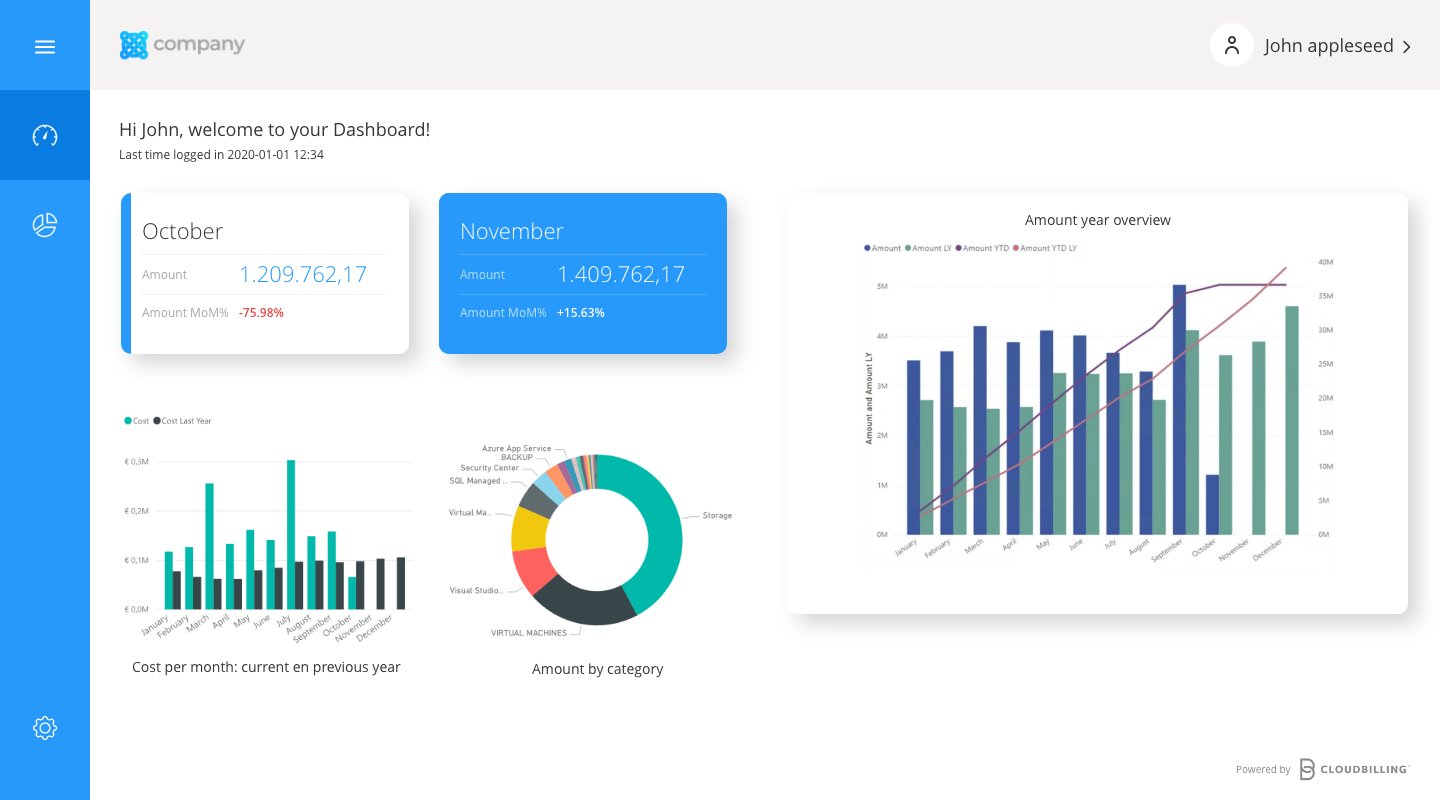
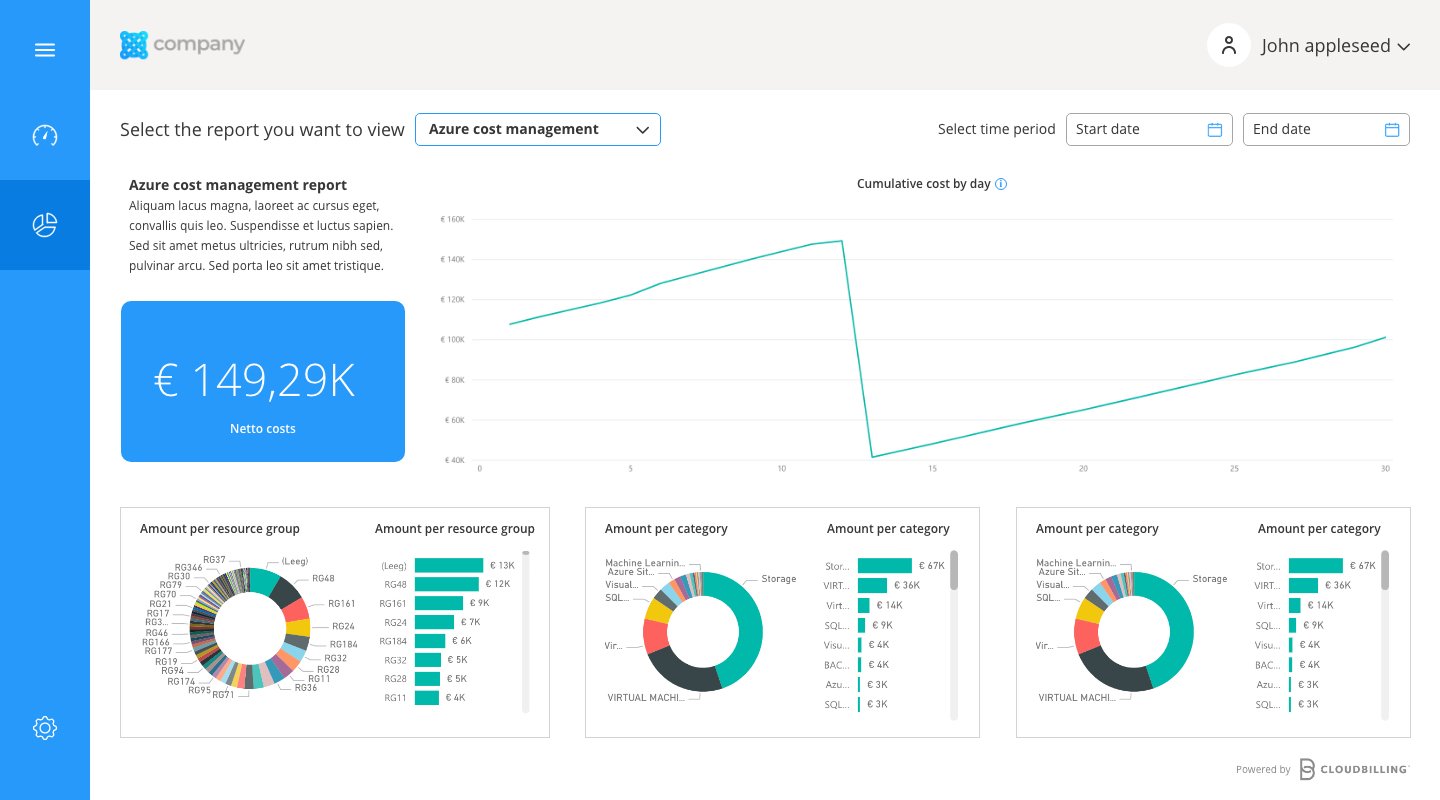
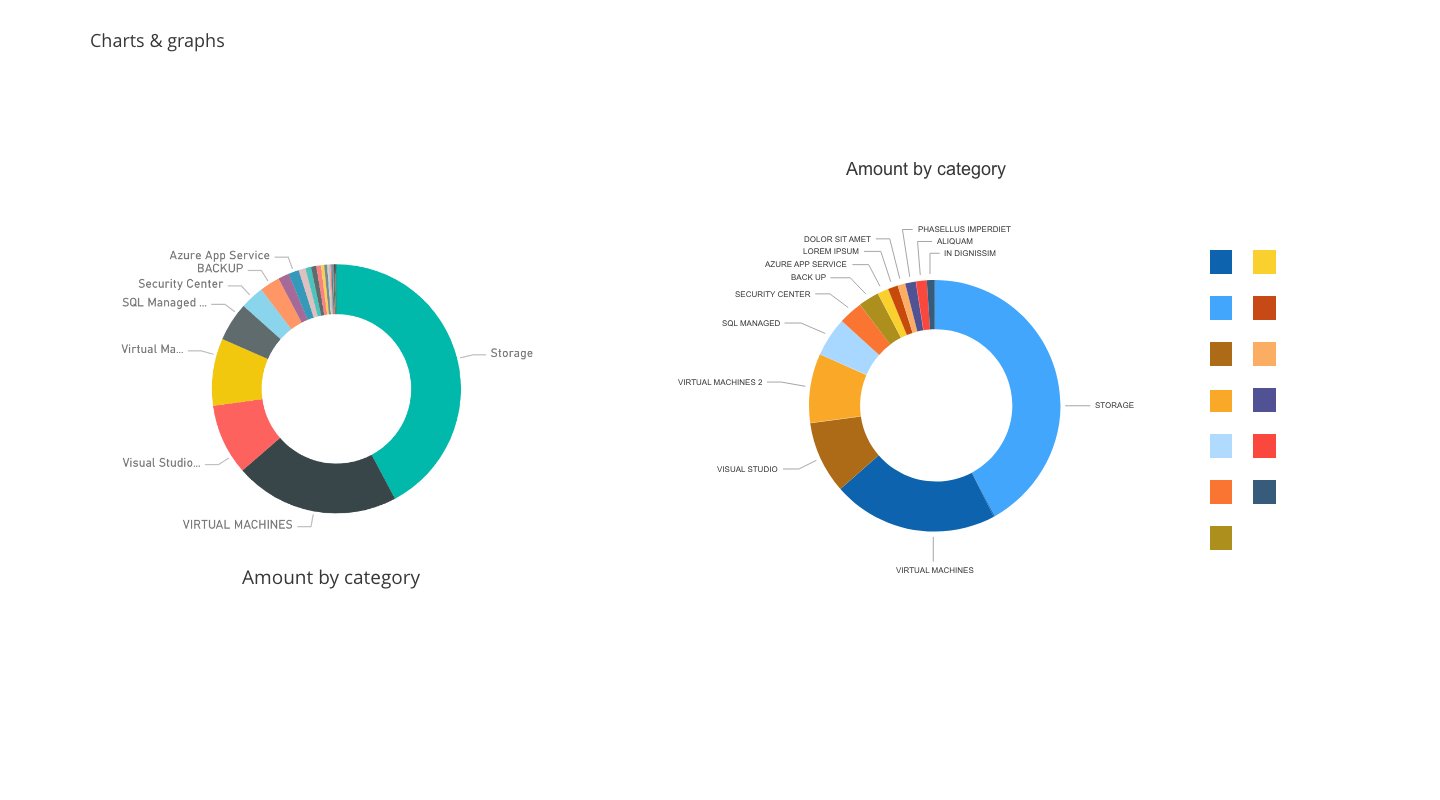
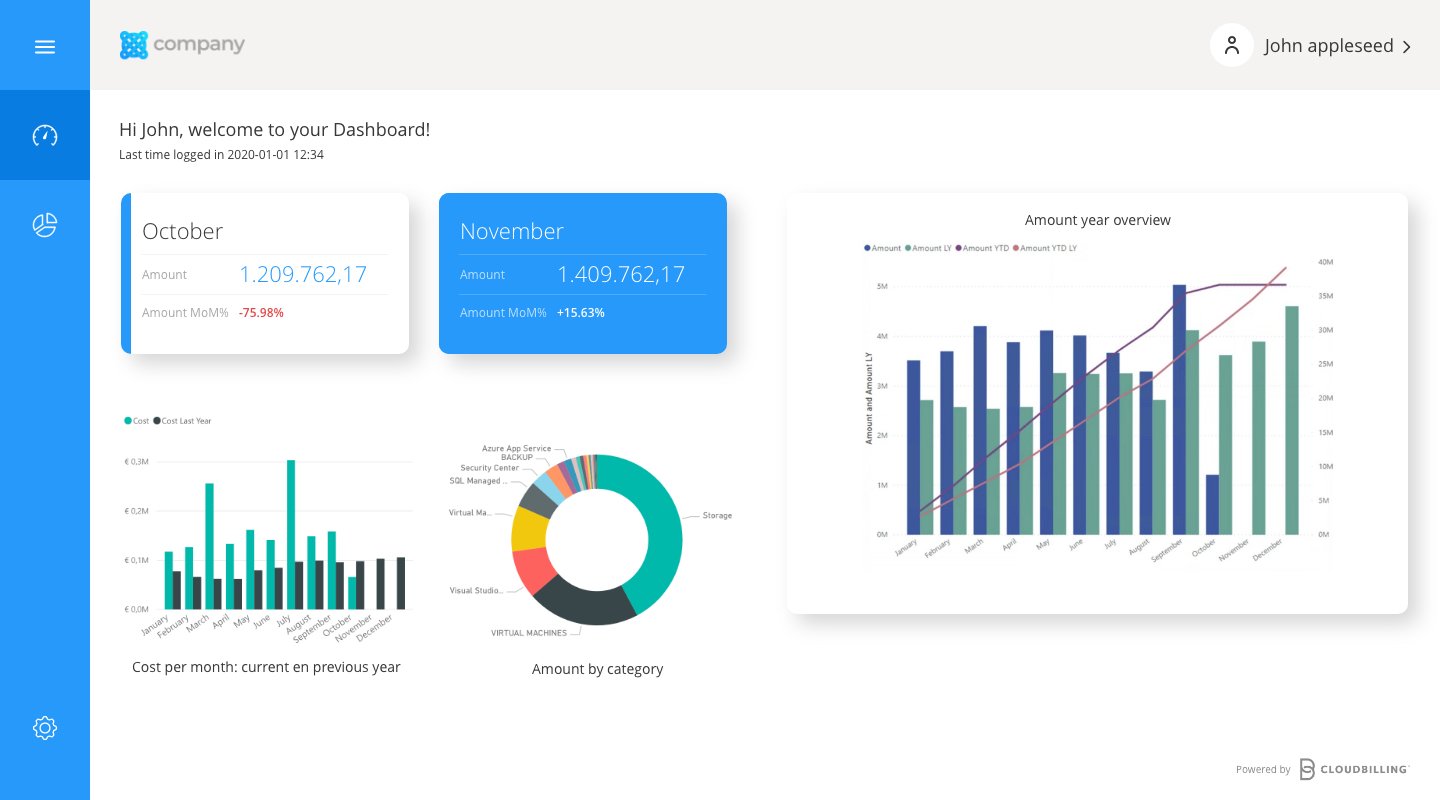
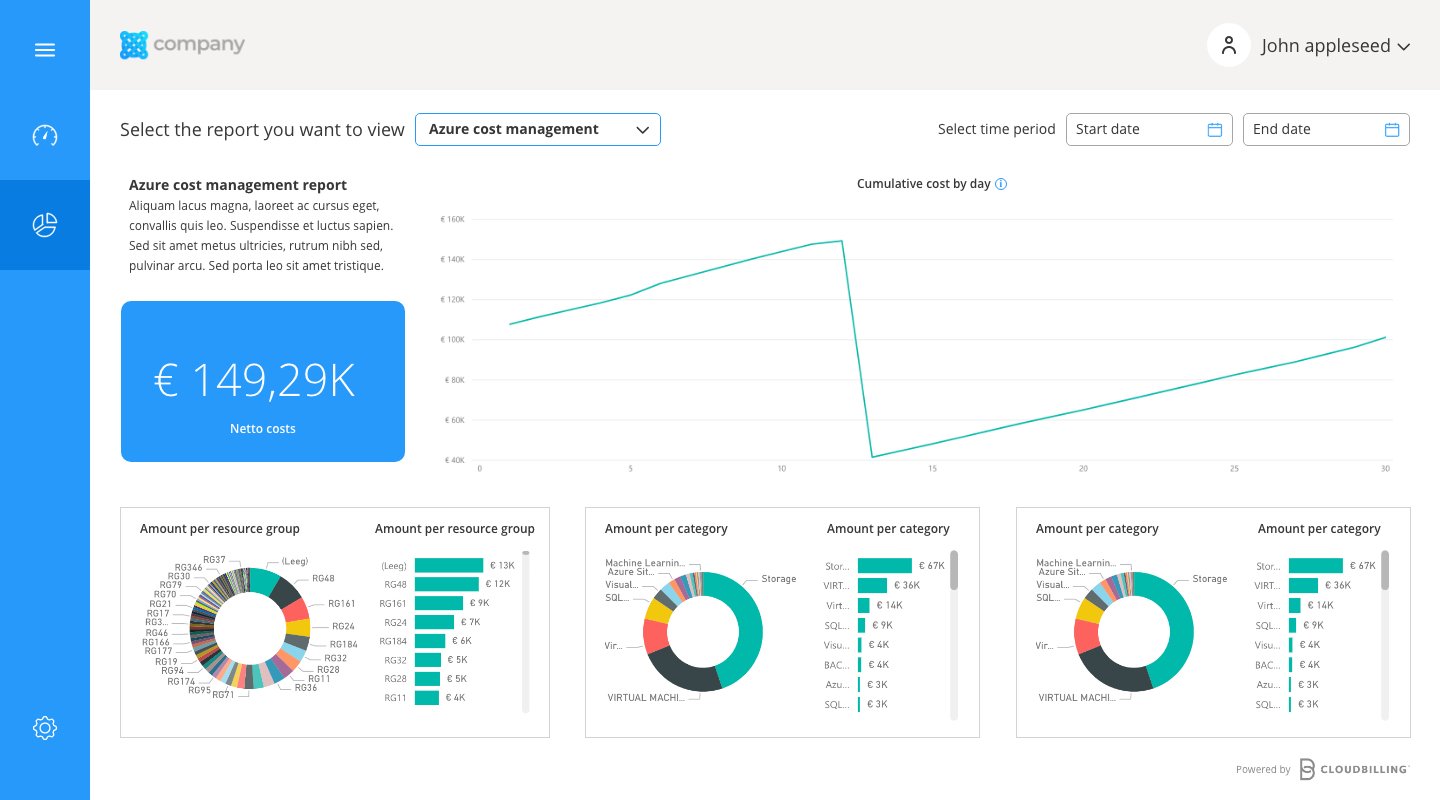
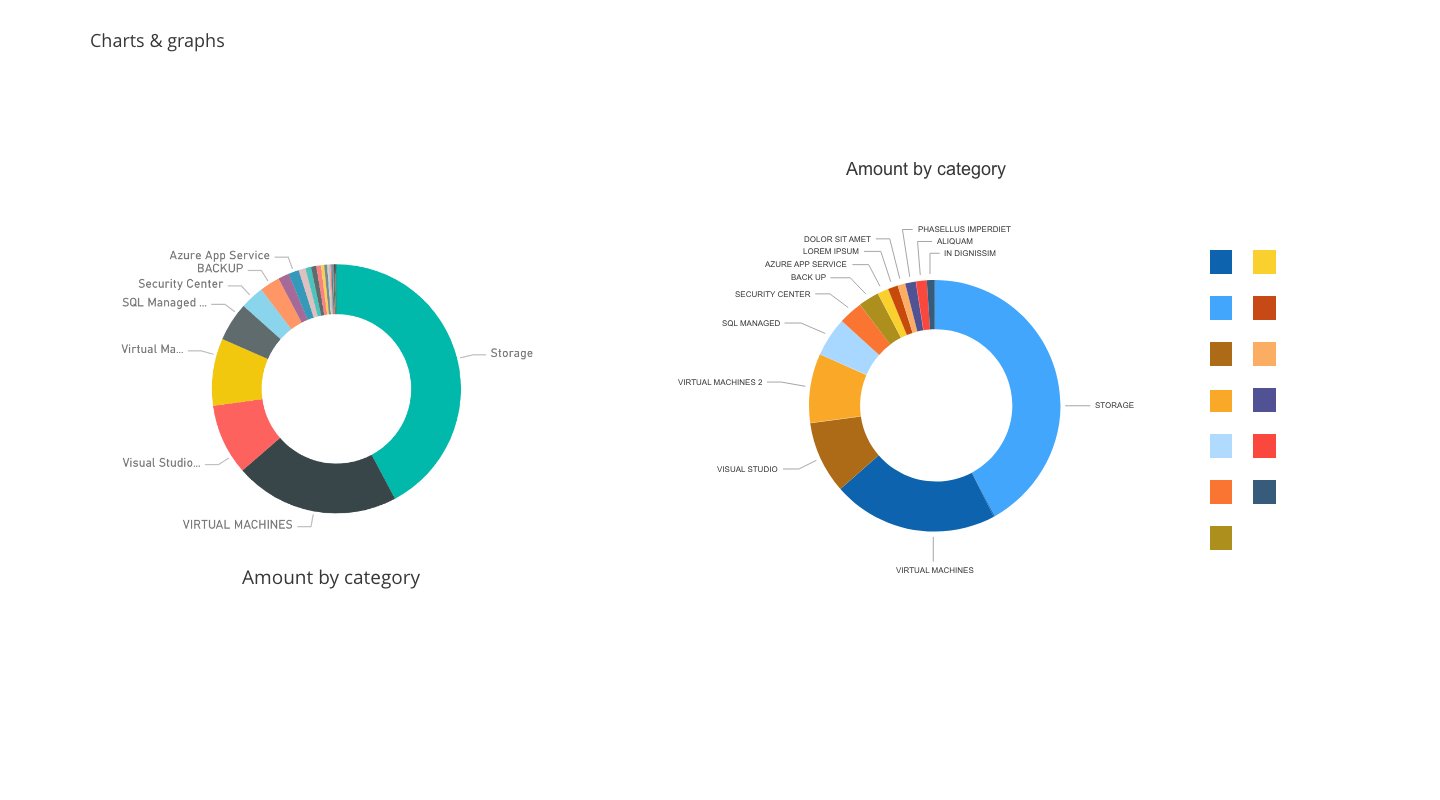
Clearly, having a high-quality billing process has tremendous value as it enables companies to use the billing data as a source for Business Intelligence and Customer Portal purposes - and thereby elevate their performance and customer satisfaction.
“By providing a scalable platform for billing and BI, CloudBilling helps us to keep growing”
Billing best practices
When it comes to billing best practices for Managed Service Providers, there are several key considerations to keep in mind.
First, understand the billing and pricing structures: Each cloud platform has its own unique billing and pricing structure, it's important for MSPs to understand these structures in order to accurately bill clients for the services they provide. This includes understanding the pricing models, reserved instances and other cost-saving options available.
Second, it's important to set up billing alerts to notify the company of any unexpected changes in usage or spending. This can help to identify and resolve issues before they become a significant problem. If such a change happens, it is important to involve the customer as soon as possible.
Third, use tags: MSPs should use tags to organise and track resources. This allows them to label resources and track usage by client, project, or department, making it easier to generate accurate invoices and identify areas where usage may be higher than expected.
Fourth, utilise cost management tools: All the major cloud platforms provide cost management tools that can help MSPs to track usage and costs, identify areas where they can optimise their resources, and reduce costs. MSPs should regularly review and use these tools to manage their cloud expenses.
Fifth, many cloud platforms provide cost management tools such as AWS Cost Explorer and Azure Cost Management. These tools provides detailed insights into usage patterns, costs, and potential savings opportunities. They can help MSPs to identify areas where usage may be higher than expected, and take action to optimise resources and reduce costs.
Sixth, It is also important to regularly review and optimise cloud resources to ensure that they are being used efficiently and cost-effectively. This can include shutting down or scaling down resources that are no longer needed, or using Azure's reserved instances or Azure Hybrid Benefits and AWS Savings Plans to reduce costs.
Finally, MSPs should also consider using third-party cost management tools like CloudBilling, which provides specialised but flexible cloud billing software paired with advanced analytics and cost management solutions.
Challenges
Setting up a proper billing process can be quite challenging. Because a billing process should cover the entire business. It should be able to handle the billing of for example, hardware, time and material, maintenance/service fees and hardware; and not just the billing of (public) cloud resources. As a result, cloud-dedicated billing or cost management solutions often don't cut it.
Another factor is the need for flexibility and scalability of the billing process. With ever-changing cloud offerings and evolving hybrid pricing models, a rigid and narrow-focused process will quickly turn into a burden.
The need for a high degree of automation and ability to integrate a billing solution with surrounding systems are also important requirements to consider. Key reasons for this are streamlining of financial operations, error reduction, shortening the billing process, improving cashflow, and freeing up human resources for other, more strategically valuable activities.
Data security is also becoming more and more important. Large amounts of sensitive data are processed by the billing- and financial systems. It is therefore important to have a clear understanding of the data residency and compliancy requirements that the billing process should adhere to.
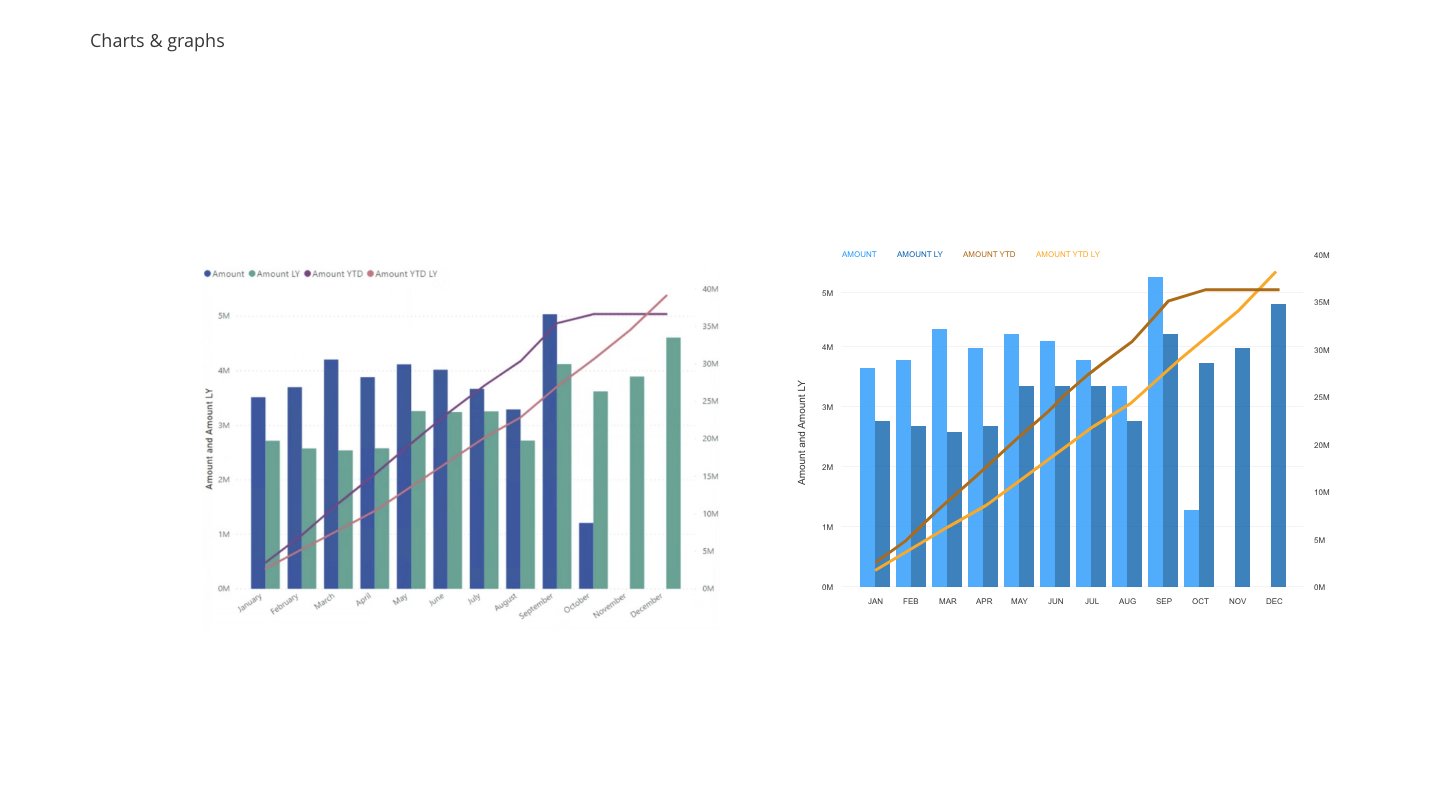
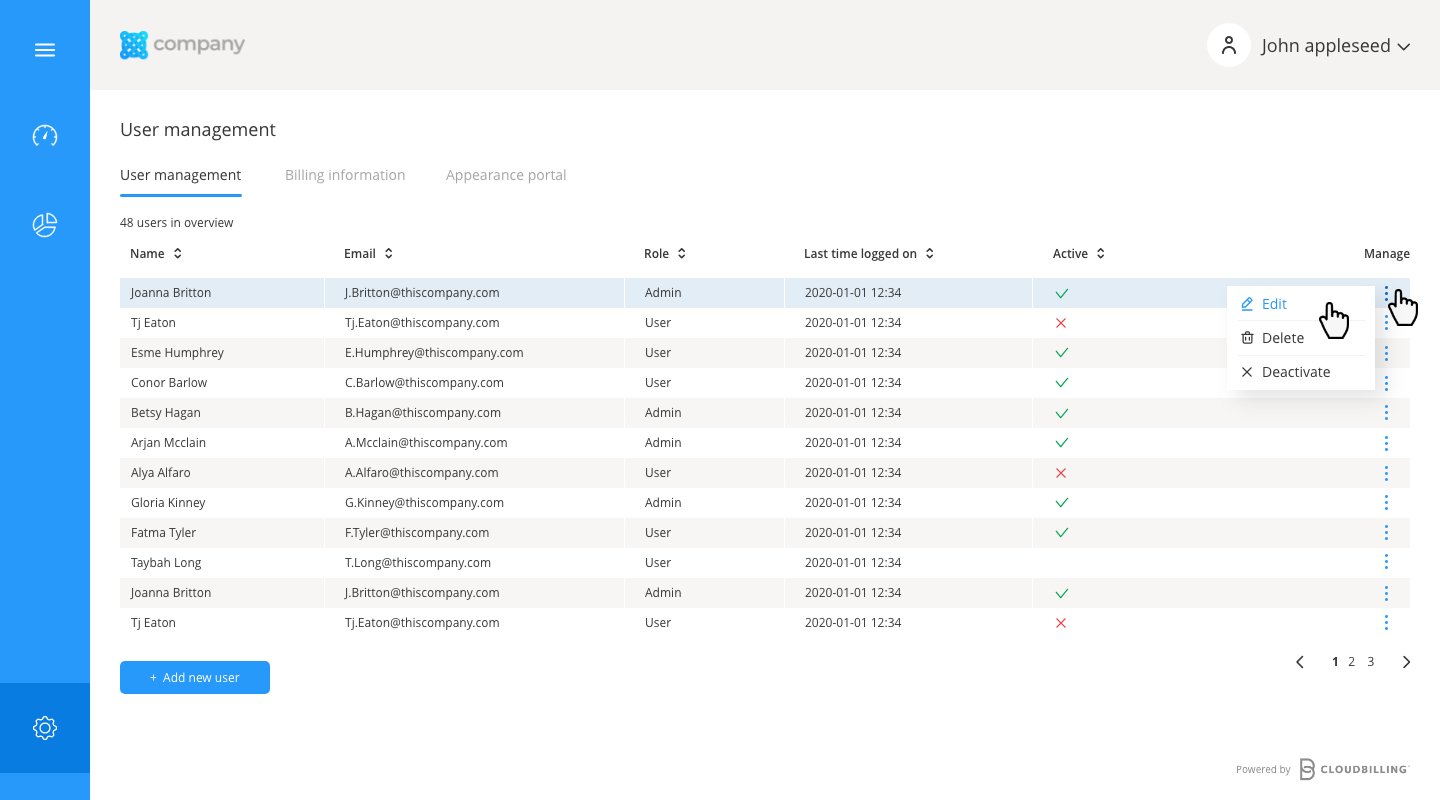
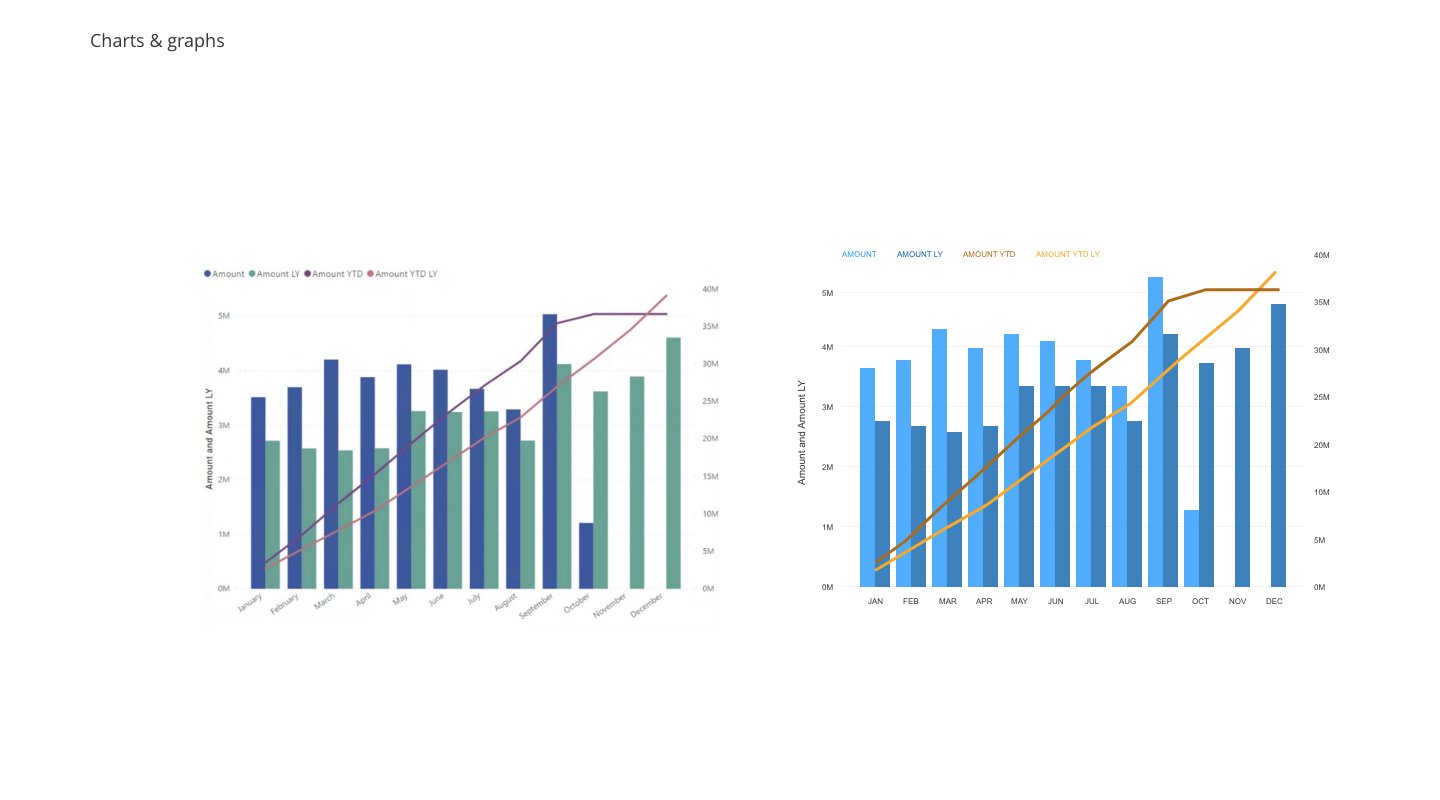
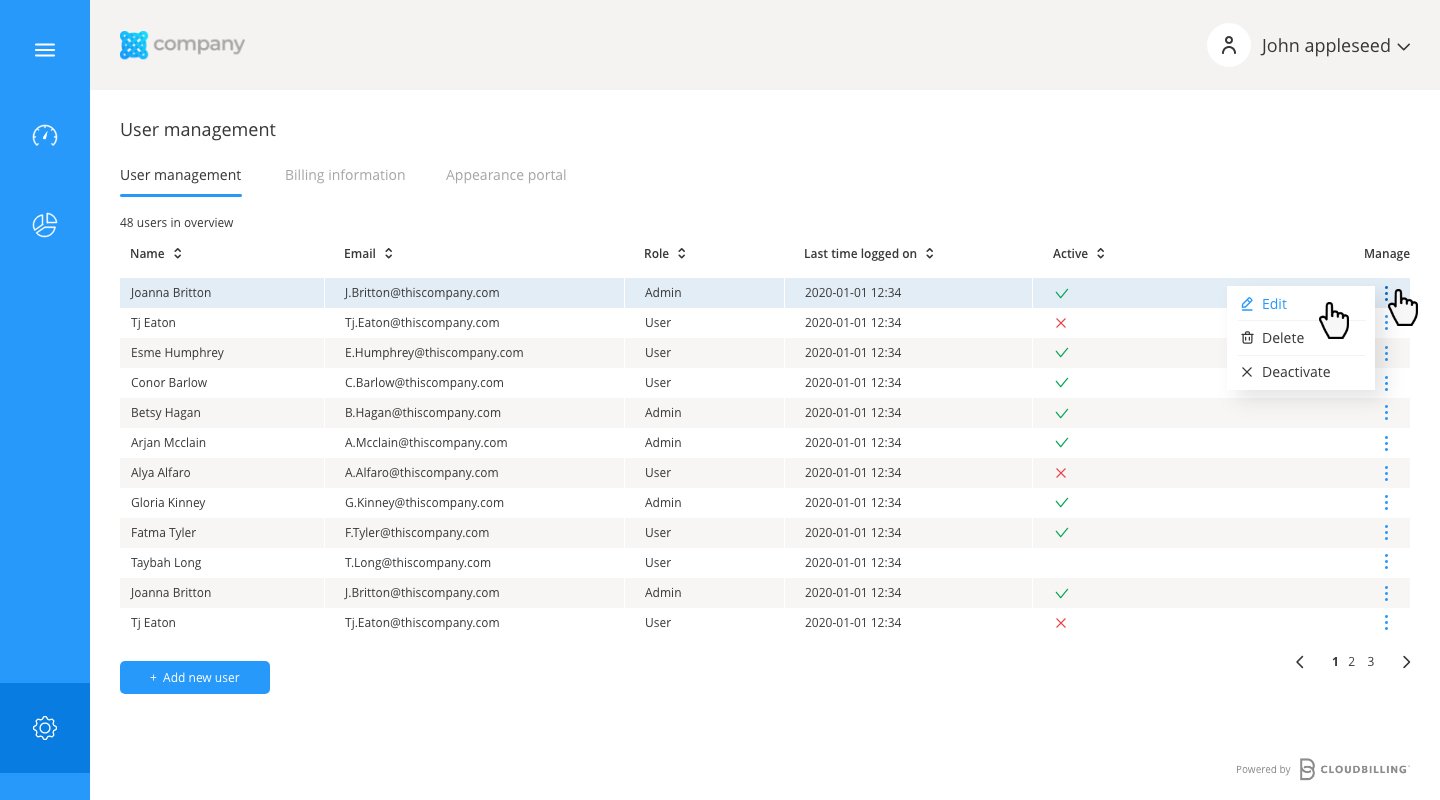
Most billing solutions are not equipped to handle high volume data, complex pricing from multiple sources and are not able to consolidate this in an automated fashion on one or more invoices. Additionally, many solutions do not offer out-of-the-box analytics or can provide billing data in a standardized fashion.
These solutions are designed to facilitate invoicing and were never designed to function in a world where business intelligence and analytics are the main driver for strategic decision making.
From Billing to Value add
Billing challenges and Business Intelligence strategies are two common topics for Managed Service Providers these days. Service providers must deal with the complexities of the public cloud and their respective providers. The public cloud and corresponding services have been growing at an impressive pace. The worldwide public cloud services market grew 29% year-over-year in 2021 according to IDC.
Billing as a critical value driver
These growth figures however conceal an uncomfortable truth: The big cloud providers continue to pursue profits at the expense of users. Rather than pursuing fair and transparent pricing, the big cloud providers fail to reduce costs to ensure consistently high profits for their shareholders.
The opaque billing structure, lack of support regarding their partners on billing and insight means that regularly customers are saddled with unexpected costs for something as simple as data transfers. Often business forget the importance of billing: how it influences almost all departments and affects more people in a business than you might think. Billing is a critical process, one that frequently results in customer contact. The complexity and (in)transparency of the public cloud are only adding to that importance.
Customers are more discerning than ever and will be willing to switch to service providers that do not punish them with hidden fees and unexpected costs. Customers are looking for a pro-active partner that can help them optimise their cloud, reduce costs and accelerate their success as a business.
A new mindset
The way we think about billing needs a different mindset; a more holistic approach can turn your billing from a painful process to a customer-facing value added service that improves your customer relation.
A powerful billing solution fit for public cloud usage combined with an analytics suite can truly transform your business. Change the conversation with your customers from money to value. Providing customers with insights on their cloud usage, enriched with your own services allows you to position yourself as a true partner.




